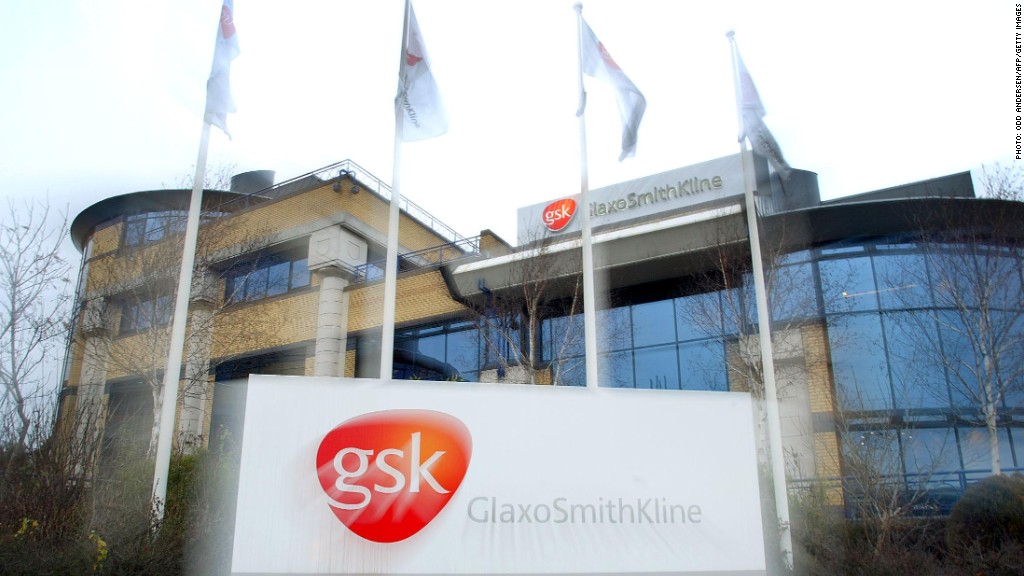
Like many other multinationals over the past few decades, GlaxoSmithKline came to China for the chance to sell to 1.3 billion new customers in the world's fastest growing drugs market.
The company has invested heavily here, setting up clinical centers and research facilities in Tianjin and Shanghai. The drugmaker boasts that it has spent more than 1 billion yuan on research and development in China.
GlaxoSmithKline now stands accused of orchestrating a massive bribery and corruption scheme that included hundreds of millions of dollars in kickbacks in China. Four of the company's top executives have been detained by police and others have reportedly left the country.
It's not yet clear how much damage the scandal will do to GSK's reputation or bottom line. But the episode underscores the challenges of doing business in China, an enormous, rapidly developing market in which bribes and corruption are often deeply ingrained.
"There are certain industries where corruption is still very common," said Ben Cavender, an associate principal at China Market Research Group. The pharmaceutical industry, he said, is one in which bribery is endemic.
"GSK is not special in terms of what they do," Cavender said. "Most companies in this sector are probably using kickbacks or bribes."
It's not yet clear whether the GlaxoSmithKline allegations are tied to a probe of price setting practices at 60 pharmaceutical companies announced last month by authorities. But there are signs that investigators might soon name and shame more drug companies as part of a larger anti-corruption crackdown.
Wendy Wysong, head of Clifford Chance's anti-corruption practice in Asia Pacific, said Tuesday that her law firm is aware of four other pharmaceutical companies that are being investigated by local anti-corruption authorities.
Wysong declined to name the companies or say whether she represented any of the firms in question.
Related story: Rolls-Royce in China corruption probe
For now, it appears that GSK (GSK) will remain in the hot seat. Chinese authorities allege that the firm's employees used inflated charges at travel agencies to conceal the payment of bribes to doctors, hospitals and government officials.
It is likely that the bribery scheme was designed to encourage the use of GSK products, and to keep prices at artificially high levels.
GSK -- which makes Paxil, Avandia and Wellbutrin -- said Monday it was "deeply concerned and disappointed" by the allegations.
"GSK shares the desire of the Chinese authorities to root out corruption," a spokesperson said. "These allegations are shameful and we regret this has occurred."
Medical workers are thought to be particularly susceptible to bribery in China because their salaries often lag other fields -- even though extensive education is required to enter the profession.
"Doctors are severely underpaid relative to what they do," Cavender said. "They tend to have very low salaries and their compensation levels don't allow them to live a middle class lifestyle."
Related story: China opens investigation into drug prices
The pharmaceutical industry is also a place where the interests of the government clash with private enterprise.
The state finances medical care for many Chinese, making the government one of the drug companies' biggest customers. As a consequence, regulators often work to keep costs low through the implementation of price ceilings.
Lower pharmaceutical prices also helps keep inflation under control, leaving consumers with a little extra purchasing power -- a key factor as China works to encourage more domestic consumption.
After a series of high-profile scandals involving its own members, China's government is getting more serious about bribery. Former President Hu Jintao has even warned that a failure to tackle corruption could be fatal for China.
Cavender said that the GSK investigation is likely part of a much larger trend -- one with consequences for companies that draw the attention of authorities.
"For foreign companies doing business in China, it's going to be really important to keep to the exact letter of the law," he said.
